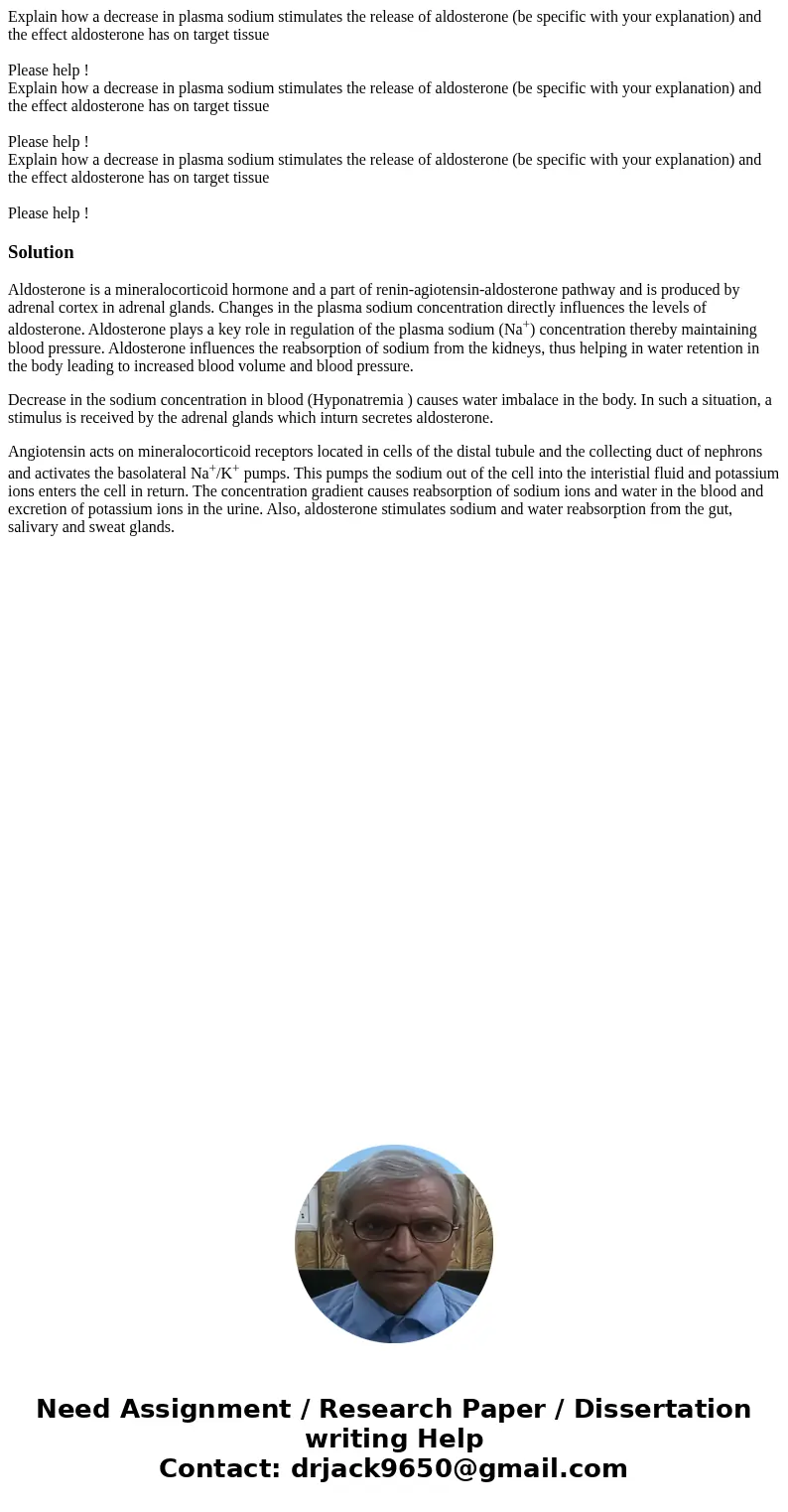Explain how a decrease in plasma sodium stimulates the relea
Solution
Aldosterone is a mineralocorticoid hormone and a part of renin-agiotensin-aldosterone pathway and is produced by adrenal cortex in adrenal glands. Changes in the plasma sodium concentration directly influences the levels of aldosterone. Aldosterone plays a key role in regulation of the plasma sodium (Na+) concentration thereby maintaining blood pressure. Aldosterone influences the reabsorption of sodium from the kidneys, thus helping in water retention in the body leading to increased blood volume and blood pressure.
Decrease in the sodium concentration in blood (Hyponatremia ) causes water imbalace in the body. In such a situation, a stimulus is received by the adrenal glands which inturn secretes aldosterone.
Angiotensin acts on mineralocorticoid receptors located in cells of the distal tubule and the collecting duct of nephrons and activates the basolateral Na+/K+ pumps. This pumps the sodium out of the cell into the interistial fluid and potassium ions enters the cell in return. The concentration gradient causes reabsorption of sodium ions and water in the blood and excretion of potassium ions in the urine. Also, aldosterone stimulates sodium and water reabsorption from the gut, salivary and sweat glands.

 Homework Sourse
Homework Sourse